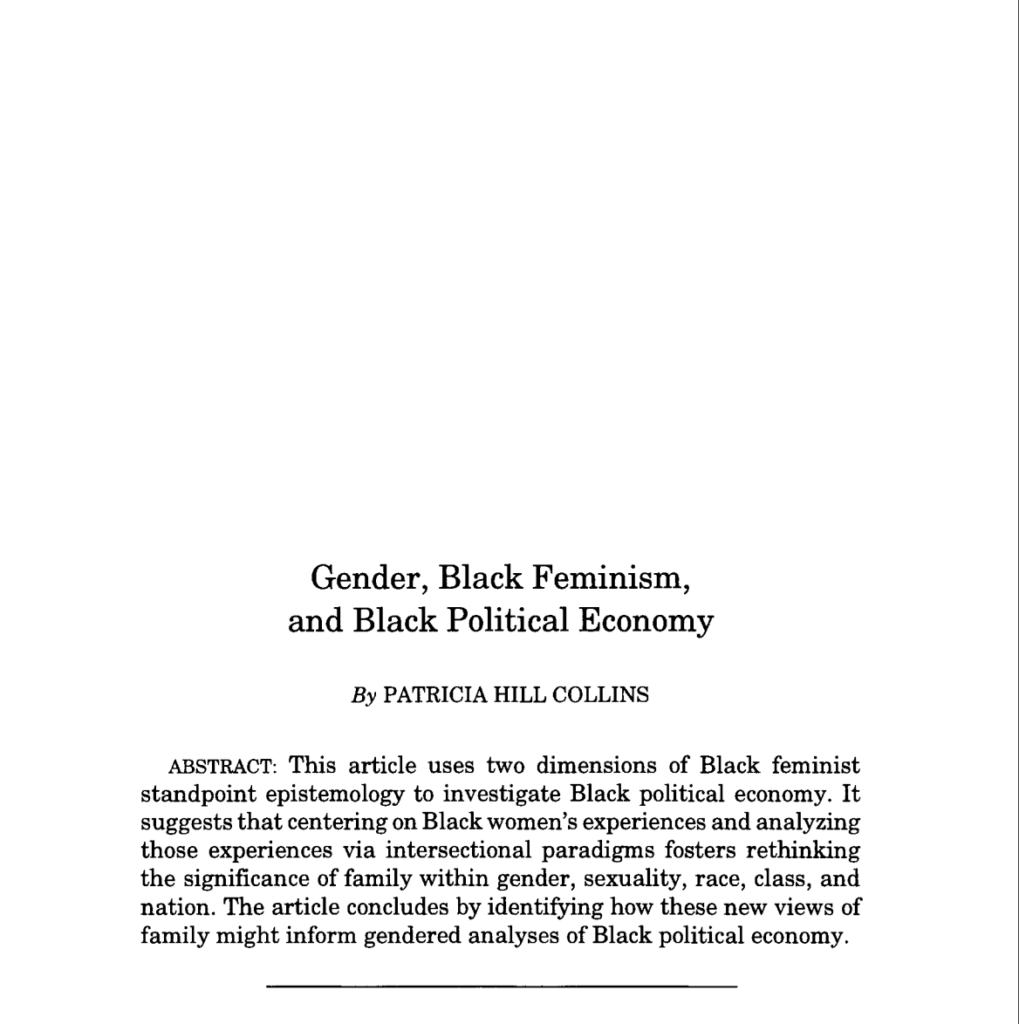In her article Collins expresses that gendered analysis is essential for understanding Black
American political economy and criticizes the historic omission of gender from race and class
analyses. It advocates for incorporating Black women's experiences and perspectives through a
Black feminist standpoint, highlighting how intersecting systems of oppression shape Black
poverty and inequality in North America. The text also underscores the significance of family
structures, property access, and marriage laws in perpetuating gender and racial disparities within
the Black community and calls for a more comprehensive approach to address these issues. Her
emphasis on a gendered analysis to understand Black American political economy resonates with
the organization's focus on confronting hegemonies and analyzing global hierarchies of privilege
and power. The advocacy for incorporating Black women's experiences through a Black feminist
standpoint parallels the pillar of building new knowledge bases for South Feminist activism and
decolonizing knowledge. Additionally, the critique of structural inequities like family systems,
property access, and marriage laws relates to reimagining development by proposing feminist,
decolonial paradigms. Finally, the call for a comprehensive approach to address intersecting
oppressions supports strategies for change and resistance, fostering solidarity and re-imagining
power dynamics.

